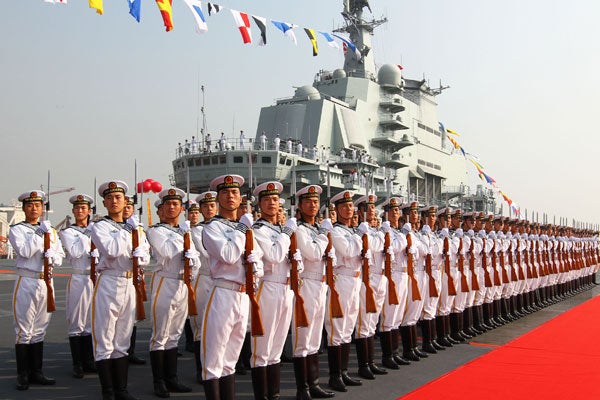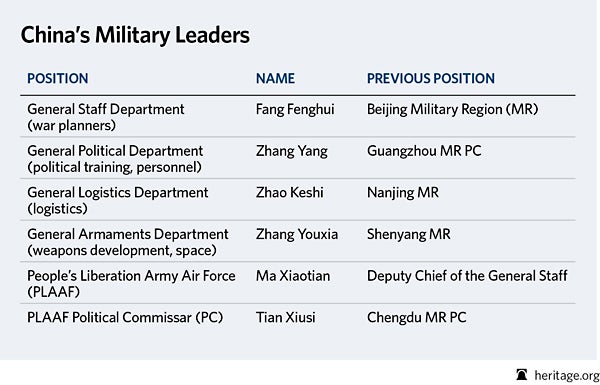China’s Next Military Leadership Takes Shape
Dean Cheng /
This morning’s news reports indicate that a large portion of the Central Military Commission (CMC), the entity that actually manages and oversees China’s multimillion-man military, is now in place. When the Chinese Communist Party (CCP) 18th Party Congress convenes two days after the U.S. election, the top Chinese leadership will undergo a wholesale change, as Hu Jintao and Wen Jiabao give way to Xi Jinping and the “fifth generation” of new, senior Chinese leaders. This transition will extend to the Chinese military leadership, which will turn over at the same time.
While the entire CMC leadership has not yet been revealed, certain things are already becoming clear. In the first place, the three officers who are not retiring will not be left in place. Thus, Chang Wanquan (General Armaments Department), Wu Shengli (PLA Navy), and Xu Qiliang (PLA Air Force) are all likely to be promoted, presumably with two to CMC vice chairmanships and one to the position of defense minister.
In addition, when we examine what has been announced, it is clear that the General Departments will remain in the hands of the ground forces. This is because the General Departments not only oversee the entire People’s Liberation Army (PLA) but are also specifically charged with managing the ground forces. Thus, despite all the efforts at increasing jointness, the organization of the PLA continues to limit the potential for navy, air force, or second artillery officers to become heads of the General Departments.
Should Wu or Xu rise to the vice chairmanship, however (and even more if they both do), it will be a signal of the ongoing emphasis on jointness and perhaps a reorganization of the senior PLA leadership in the coming 10 years, such as the creation of a ground force staff.
It is also noteworthy that the newly announced political commissar for the PLA Air Force is switching places with his counterpart from the Chengdu Military Region (MR). This suggests, on the one hand, that the Chengdu MR (which includes Bo Xilai’s stronghold of Chongqing) is receiving high-level attention but the current officers there are not all necessarily tainted by association.
Similarly, it is intriguing that the new head of the General Political Department, the military’s top political commissar, is coming from the Guangzhou MR, which includes Guangdong province, which is commonly associated with reform.
Finally, it is perhaps worth noting that the heads of the four General Departments are all drawn from coastal MRs. It is not clear whether this reflects a lesser importance accorded the Lanzhou and Chengdu MRs, which border Russia and India (respectively), but it does suggest a likely continued emphasis on anti-access/area denial operations and concerns with maritime disputes with China’s various neighbors.


